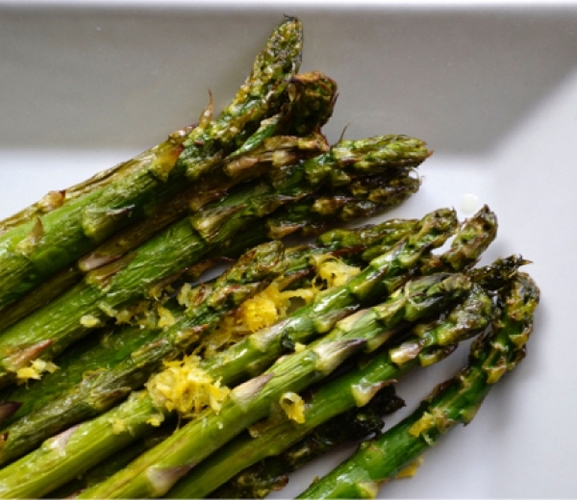WEST BRATTLEBORO — Knock, knock.
-Who's there?
-Spring.
-Spring who?
Ahh, springtime in Vermont. 'Round here, “In like a lion, out like a lamb,” applies to April; March heads out as a slightly smaller lion. Forget climate change; this winter resembled climate derange.
Vermont spring is messy: white snow becomes brown mud; icy roads convert to cratered potholes; melting roofs cause soggy Sheetrock.
Still, you'd be hard-pressed to find even a grumpy New Englander complaining about these first signs of spring after the winter we've had.
Early spring is such a hopeful time, every sign a delight: sun shining, chickens laying, and syrup boiling. Walkers linger with layers shed.
Spring brings upheaval and regeneration. I often praise spring cleaning rituals with purifying herbs such as dandelion, burdock, and nettles - strong blood and organ detoxifiers that rejuvenate our sluggish winter systems.
Instead, let's focus on the local fare gracing our grounds.
* * *
Alert friend and food photographer Julie DuCharme Fallone informs me that roasted veggies are “super trendy” - a term not normally associated with mud season, but what the heck. It's April, the snow is leaving, and we could all use a bit of gussying up.
The pragmatist in me loves the value in roasting veggies. High, fast heat retains moisture and maximizes nutrients. Roasting veggies is similar to stir frying but adds crispiness from the vegetable's sugars as they caramelize.
Roasting bridges the seasons, offering that grilled flavor and texture that's been lacking in winter's comfort foods; it respects the fact that it's still a bit nippy out there. We might be over the weekly stew, but we're nowhere near fresh tomato-basil salad.
You can roast most any vegetable, root, or tuber. Welcome springtime asparagus, ramps (wild spring leeks), and early turnips alongside wintered parsnips and Gilfeather turnips. Add ramps to last year's garlic. You could even use radishes and endive, if you are so inclined.
The rule to roasting follows basic physics: Foods that take longer to cook are cooked first. So begin with roots and tubers, then add quicker cooking vegetables last, so they all come out together properly done.
Super-trendy roasted vegetables
Roast one or any mixture of winter and spring veggies, with herbs to boost flavor.
Clean, dry, trim, and cut into slices:
¶Winter roots, tubers, and herbs: parsnip, carrot, cabbage, Gilfeather turnip, beet, potato, onion, and garlic
¶Early-spring vegetables: asparagus, spring turnip, radish, morel mushroom
¶Early spring herbs: ramps, nettles, dandelion, arugula, spring onions, and chives
Lightly coat winter veggies, tossing them gently in a bowl with:
¶High heat oil: grapeseed, safflower, peanut or canola (organic best)
Place winter veggies and herbs onto a sheet pan. Roast them on high heat (400 degrees F), about 10 to 15 minutes, until veggies are crispy, browned, and yield when pierced with a fork or knife (not mushy).
Next, roast spring veggies until done, about 5-10 minutes.
Toss all veggies gently with early spring herbs, plus:
¶Vinegar: Bragg or Eden Foods brands, raw apple cider vinegar, or red wine vinegar
¶tamari
¶Whole sea salt and black pepper, freshly ground
* * *
Another great vinegar is Vermont Quince Vinegar. Quince has a sweet tang like balsamic, with a lovely pink color. Also delicious are the artisan balsamic vinegar varieties found at Dutton's farm stands in Vermont and at Your Kitchen Store, in Keene, N.H.
You can create your own flavored vinegars by adding to any of these high-quality vinegar bases:
¶Whole fresh herbs: dandelion, nettle, ramp, thyme, sage, or any other fresh herb you'd like
Place herbs in a glass bottle.
Fill with vinegar.
Let sit in cool, dark place for a few days. Occasionally, shake gently.
When the vinegar is ready, keep it in the refrigerator, which slows fermentation. (Otherwise, it just keeps fermenting, and it can get kind of funky.)
Raw herbed vinegars initiate our bodies' spring cleaning, stimulate our immune systems, and even help regulate spring allergies. Plus, their zingy taste awakens our senses.
So...
-Knock knock!
-Who's there?
-Spring? Welcome!
